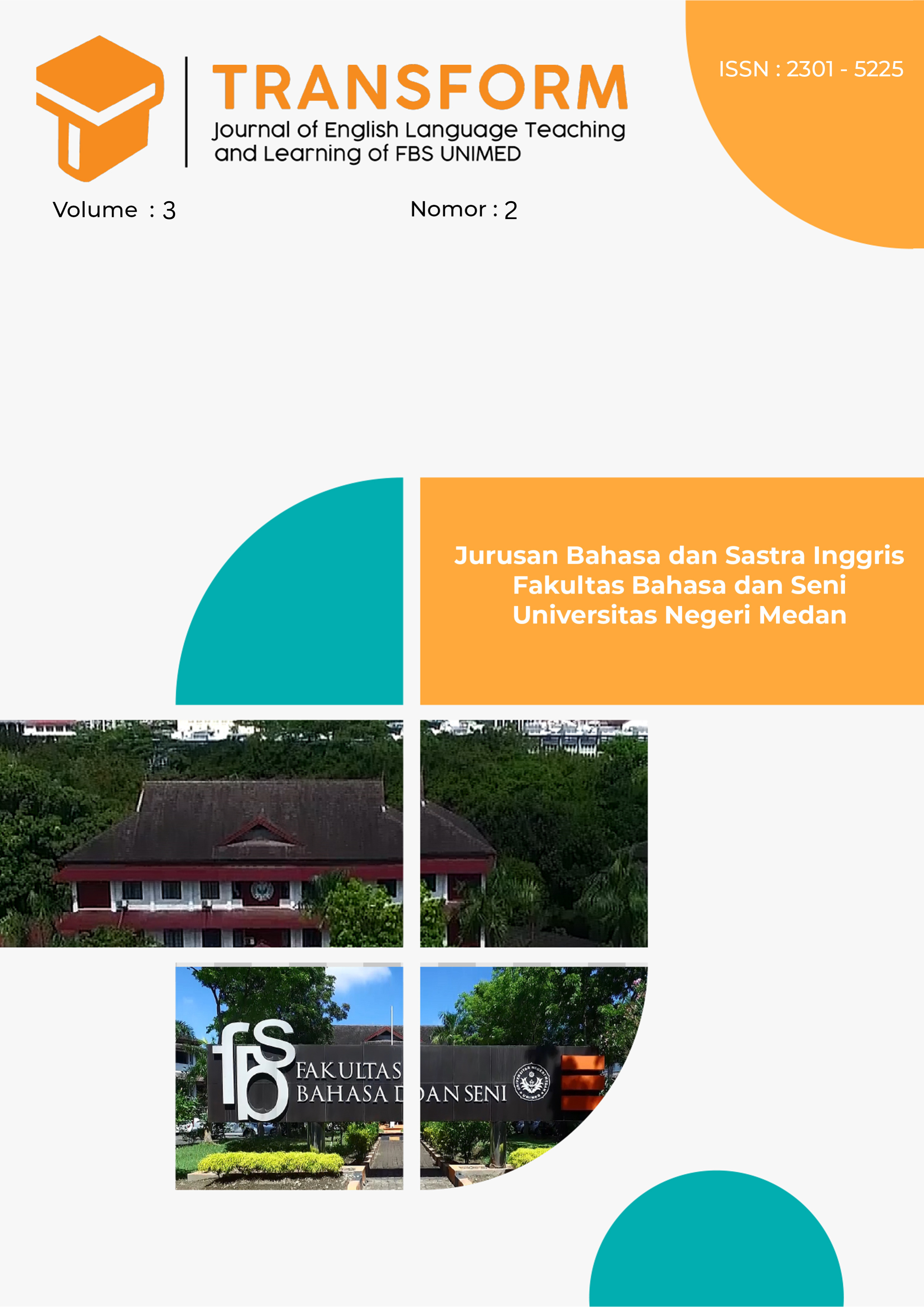LEXICAL DENSITY OF ENGLISH READING TEXTS FOR SENIOR HIGH SCHOOL
DOI:
https://doi.org/10.24114/tj.v3i2.1838Abstract
ABSTRACT This study deals with the lexical density especially the lexical items of English reading texts in the textbook for senior high school. The objectives of the study are to find out the lexical density especially the lexical items which formed in the reading texts of Look Ahead textbook and the type of genre which has the highest lexical density of the reading texts. This study was conducted by descriptive method with qualitative approach. The data of this research were the English reading texts of Look Ahead textbook for senior high school grade twelve published by Erlangga. The result of the analysis showed that: (1) The lexical items that formed in narrative texts are noun and verb, explanation texts are noun and verb, discussion texts are noun and verb, and review texts are noun, adjective, and verb. This means that narrative, explanation, and discussion texts are formed by two lexical items, they are noun and verb while review texts are formed by 3 lexical items, they are noun, adjective, and verb. (2) The lexical density of explanation texts are 58,42% an 52,05%, review texts are 55,73% and 53,51%, narrative texts are 48,96% and 43,97%, and discussion texts are 47,79% and 42,57%. The highest lexical density of the reading texts is the explanation text with percentage 58,42%. This meant that explanation text is the most difficult text to be comprehended in the textbook. It is suggested that further textbook writers to concern with the lexical density of the reading texts so that the textbook can be used and understood by the teacher and the students. Key words : Lexical Density, English Reading TextsDownloads
Published
2014-06-15
How to Cite
Nesia, B. H., & Ginting, S. A. (2014). LEXICAL DENSITY OF ENGLISH READING TEXTS FOR SENIOR HIGH SCHOOL. TRANSFORM : Journal of English Language Teaching and Learning, 3(2). https://doi.org/10.24114/tj.v3i2.1838
Issue
Section
Articles
License
Copyright (c) 2014 Bersyebah Herljimsi Nesia, Siti Aisah Ginting

This work is licensed under a Creative Commons Attribution-ShareAlike 4.0 International License.
Authors who publish with this journal agree with the following terms:
- Authors retain copyright and grant the journal right of first publication with the work simultaneously licensed under a Creative Commons Attribution License that allows others to share the work with an acknowledgment of the work's authorship and initial publication in this journal.
- Authors are able to enter into separate, additional contractual arrangements for the non-exclusive distribution of the journal's published version of the work (e.g., post it to an institutional repository or publish it in a book), with an acknowledgment of its initial publication in this journal.
- Authors are permitted and encouraged to post their work online (e.g., in institutional repositories or on their website) prior to and during the submission process, as it can lead to productive exchanges, as well as earlier and greater citation of published work (See The Effect of Open Access).
- This work is licensed under a Creative Commons Attribution-ShareAlike 4.0 International License.

This work is licensed under a Creative Commons Attribution-NonCommercial-ShareAlike 4.0 International License.







